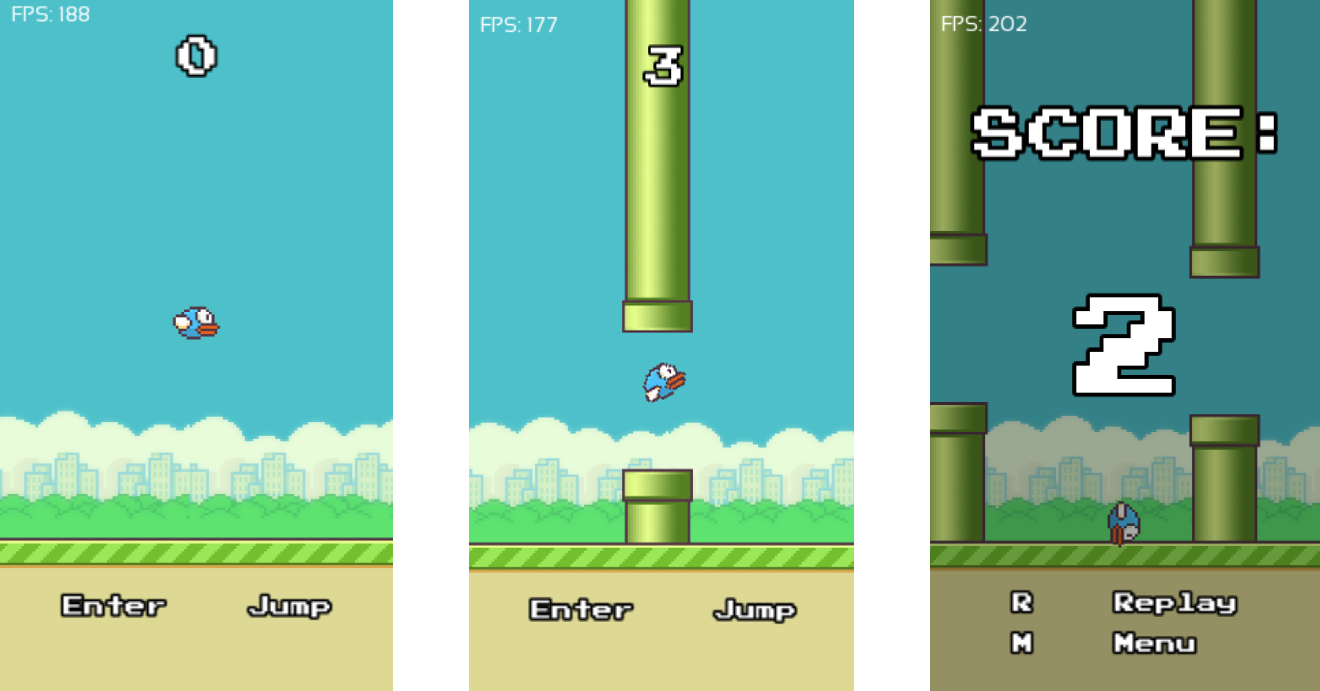1
SFML projects / Flappy Bird fine clone
« on: June 26, 2022, 09:12:34 am »
Hello everyone 
 Today I want to share my development of a clone of the prestigious Flappy Bird.
Today I want to share my development of a clone of the prestigious Flappy Bird.
It is nothing new and complex but this is my first finished and polished project.
So here is some information about the developer's side:
Thanks to SFML and C++ simplicity the game is really light.

Here is the link to download site: https://labg.itch.io/flappy-bird

 Today I want to share my development of a clone of the prestigious Flappy Bird.
Today I want to share my development of a clone of the prestigious Flappy Bird.It is nothing new and complex but this is my first finished and polished project.
So here is some information about the developer's side:
- I used Entity-Componen-System model for game structure. I don't know if it is an overkill, but ECS is definitely a strong tool.
- I also use sf::VertexArray instead of primitive shapes for drawing entities because I think it is more efficient

- Then it took me a bit to realise I messed thing up because there is no call to rotate() for array. So what I did is using rotation matrix for rotating our bird (sounds overkill too
 )
) - Last but not least, the thing I enjoy most is shader and sf::RenderTexture usage. I used pixelate shader provided in SFML example package to create super cool transition inside menu.
Thanks to SFML and C++ simplicity the game is really light.

Here is the link to download site: https://labg.itch.io/flappy-bird